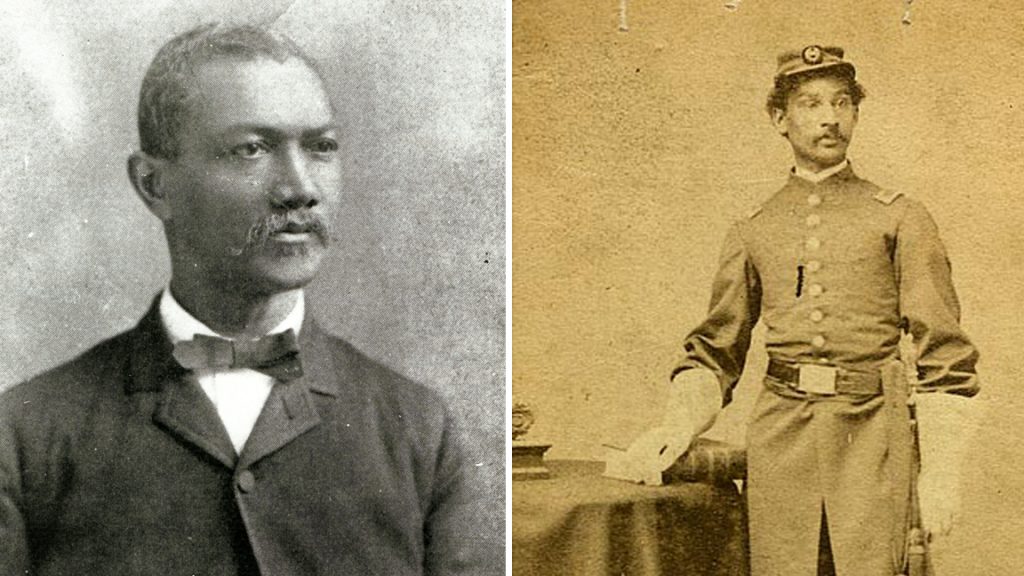Canada’s first black doctor graduated from U of T
The University’s medical history commemorates Anderson Ruffin Abbott’s trailblazing legacy.
Anderson Ruffin Abbott was born on April 7, 1837 in Toronto, Canada to Wilson Ruffin Abbott and Ellen Toyer Abbott, two immigrants from Mobile, Alabama. At the time, the African American population in Toronto was small, but to the Abbotts, who had moved two years prior, the racial climate “seemed favourable,” according to Anderson Abbott’s great-granddaughter, Catherine Slaney, who chronicled her family’s history in her 2003 book Family Secrets, Crossing the Colour Line.
Abbott attended a racially integrated mission school in Buxton, that was part of a larger settlement for formerly-enslaved refugees. The Elgin Settlement where Abbott lived and studied was one of the final ends of the Underground Railroad. He continued his studies at the Toronto Academy, as one of the school’s first Black students, graduating with honours before attending Oberlin College in Ohio.
Abbott enrolled at University College in Toronto in 1857. He studied chemistry for a year before attending the Toronto School of Medicine, an institution which later became associated with the University of Toronto and is now the Temerty Faculty of Medicine. In 1861, Abbott earned his degree in medicine from U of T’s Trinity College, becoming Canada’s first Canadian-born Black doctor.
During his time at U of T, Abbott studied under the supervision and mentorship of Dr. Alexander Thomas Augusta, a Black student who, like Abbott, graduated with a degree in medicine from Trinity College in 1856. Though Augusta in fact graduated prior to Abbott, Augusta was American-born and moved from Virginia to Toronto in 1850.
Following Augusta’s footsteps, Abbott became a commissioned officer in the United States Army and took the oath of allegiance in September 1863—a year after he became a licentiate of the medical board of Upper Canada. Abbott served in the American Civil War as acting assistant surgeon. He worked at Freedmen’s Hospital in Washington, DC (now Howard University Hospital). The hospital, under the direction of Augusta, employed Black doctors and nurses to care for Black soldiers, and in 1864 Abbott served as the chief executive officer.
Abbott and Augusta were invited to a White House levee in the winter of 1863 where President Abraham Lincoln and his wife welcomed them. Abbott wrote about the moment when he and Augusta shook hands with both the President and the First Lady. He remembers that much to the shock and disapproval of other attendants, the experience was a “sensation” because “it was the first time in the history of the US that a coloured man had appeared at one of these levees.”
Abbott was one of the doctors who tried to treat President Lincoln after he was shot on April 14, 1865. After the President’s death, Mrs. Lincoln gave Abbott the shawl that Lincoln wore to his inauguration. Abbott resigned from Freedmen’s Hospital in 1866 and returned to Canada. He then passed the exam for his medical degree in 1867 and joined the College of Physicians and Surgeons, Ontario.
Abbott married Mary Ann Casey in 1871. The couple moved to Chatham, Ontario where they eventually raised five out of their seven children. Two died in infancy. In Chatham, Abbott became the first Black coroner of Kent County and advocated for racially integrated schools as president of the Wilberforce Educational Institute, a university-preparatory school for Black high school students.
Later, Abbot and his family moved to Dundas, Ontario, where he opened a medical practice and became an editor of the local newspaper, Dundas Banner. He wrote about civil and general welfare issues under an alias. Abbott’s family moved to Oakville, Ontario in 1889 and then Toronto in 1890.
In 1894, Abbott was hired as Surgeon-in-Chief at Provident Hospital in Chicago where he worked until 1897. He was medically licensed to practice in Canada, Illinois, and Michigan. As a physician, educator, journalist, and hospital administrator during the days when the healthcare industry excluded Black professionals, Abbott was a trailblazer. He died on December 29, 1913.
Today, the Dr. Anderson Abbott Award provides a scholarship to high-achieving Black U of T students who belong to any discipline, serve their community, and need financial assistance to complete their education.

